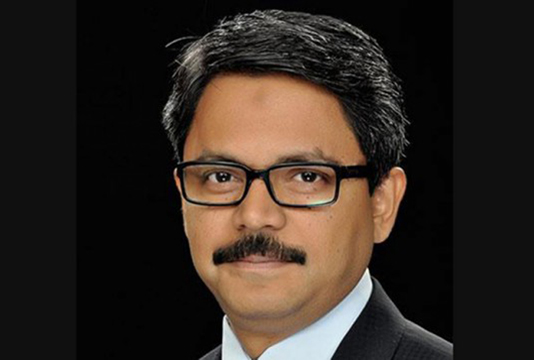DHAKA, Sept 27, 2019 (BSS)-State Minister for Foreign Affairs Md Shahriar Alam has sought youth understanding on the Rohingya issue and said the government is focusing on their repatriation to Myanmar.
“We are trying our level best to ensure their repatriation” he said while recently interacting with a group of youths, mostly university students at the Center for Research and Information’s (CRI) flagship ‘Let’s talk’ event here.
The state minister said the government will start relocation of about 90,000-100,000 of them from the crowded camps to newly accreted land of Bhasan Char to give them a better livelihood and education before their return .
UNHCR Country Representative in Bangladesh Steven Corliss, who also responded to the youth, appreciated Bangladesh for the efforts to resolve the Rohingya crisis and said the word ‘failure’ in repatriation which is often seen in media should be “banished”.
The UNHCR Representative said that he saw some “positive” things after the second attempt on August 22. “This is the first time Rohingyas asked the Government of Myanmar to verify their right to return. This is a very important starting point,” Steven Corliss said, referring to Rohingyas demands, including of citizenship, safety and security before their return.
“Second is that the Government of Bangladesh is fully respecting the individuals’ voluntary decision not to return at this time,” he said, adding that representatives of the Myanmar and Chinese embassies were there and they could see the preparations for repatriation.
Steven Corliss also, however, said that the UN expected that they would resume their discussions with the Government on the Bhasan Char soon after the monsoon season.
The Decades old Rohingya crisis took a new turn after the August 2017 appalling exodus in which nearly 750,000 people from Myanmar’s Rakhine State took shelter in Cox’s Bazar fleeing ‘ethnic cleansing’.
Bangladesh has opened its borders on humanitarian grounds. But efforts to send them back twice with the support of the international community met with little response from Myanmar. The government, the state minister said, maintained that all return of Rohingya to Myanmar should be voluntary.
The participating youth raised their concerns from security to economic impact to forestation and long term impact if the crisis persists. They also raised the issue of suffering of the host community.
“We don’t have any long- term plan, though it may sound harsh. But for us, the interest of our people, our sovereignty, and our independence comes first. Nothing can be greater than that,” Shahriar said, with applause from the participants.
He told the countries that ask Bangladesh to ensure Rohingya children’s formal education and training to pass on the message to Myanmar.
“If you (international community) can tell us, and then in equal terms you should be able to tell the same to the Myanmar government looking into their eyes and demand the same,” the state minister said.
“I hope, we will be able to implement soon the relocation of some of them to Bhasan Char, soon,” he said.
“There are ponds, facilities for livestock and minimum basic education will be ensured,” Shahriar said, adding that the place will be better than their present camps in Cox’s Bazar.
He said the government will take the international community to the island before relocating them.
“The relocation will be voluntary,” the state minister maintained.
Shahriar wanted “deeper understanding from the youth” and said the government has taken “a calculative and calculated decision” to solve the problem. “You should help the government to do that.”
The UNHCR representative said they expect resuming the talks with the government on Bhasan Char.
“We have responsibility to ensure that life is safe and sustainable,” he said, adding that it is sustainable in the sense that there are basic necessities, including water supply and livelihood.
He said “They would also look at the question of operational feasibility, including as to how we could function effectively on Bhasan Char?”
Steven Corliss said “If the government wants international support for Bhasan Char, then there is a reason for financial proposition that is a bit costly than the operation we have in Cox’s Bazar. We expect to continue discussion very soon.”
He, however, also acknowledged that despite the hardship and difficulty, Rohingya people are experiencing a level of peace and safety that they had did not been experiencing in their own country, Myanmar.
Steven Corliss said to facilitate repatriation, that “equal or more effort” should be made in the Rakhine State “to create environment, to create peace and security and make it possible for people to go home”.
He also appreciated the joint government-UNHCR ‘s biometric registration process with the support of the UNHCR.
“We have already covered 67 percent and expect to complete the rest by the end of October” the UNHCR representative noted.
He said this will give clear information to the government of Bangladesh about the population they are hosting and also this will serve as a source of identity for Rohingyas, many of whom have never had documentation.
Steven Corliss termed it a “tremendous asset” for the Rohingyas’ future to claim their citizenship which was cancelled by the Myanmar authorities in 1982 by a constitutional amendment.



